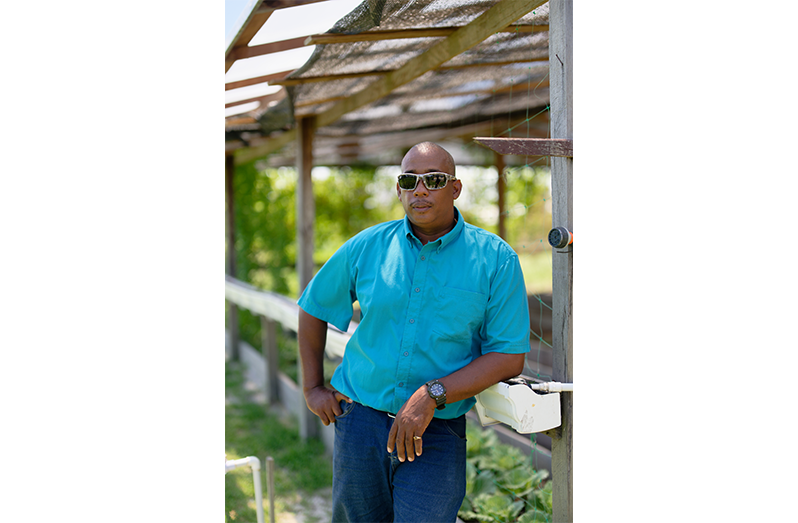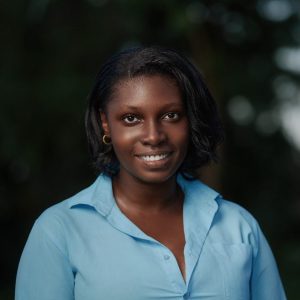Open Doors Centre for Persons with Disabilities is Cultivating Independence Through Agriculture
AT the Open Doors Centre for Persons with Disabilities, learning goes far beyond the classroom. Here, students are being taught the value of self-sufficiency through agriculture—a skill that not only feeds families but builds confidence and independence. Under the guidance of instructor Michael Trotman, small backyard plots have become living classrooms where persons with disabilities learn to grow vegetables, nurture fruit trees, and understand the science of food production. It’s a quiet but powerful effort that mirrors the spirit of Agriculture Month, highlighting that healthy food and meaningful work can grow hand in hand from the same soil.

The Open Doors Centre, formally called the National Vocational Training Centre for Persons with Disabilities, has been empowering persons with disabilities since its opening in May 2001. Instructor at the Centre’s Thomas Lands location, Michael Trotman, has been a part of the institution for years. Initially, “Sir Trotman,” as he is known to his students, focused on woodwork, including carpentry and joinery—one of the many courses offered by the Centre. Today, however, Sir Trotman is leading his students into a new venture: agriculture. “One of the areas I work in is agriculture. I am the person in charge of all the agricultural work at my location, which is on Thomas Lands. In the same compound, we have the growth centre, and all the students in the carpentry class have an opportunity to see what agriculture is all about,” he stated.
The Open Doors Centre offers a two-year course in areas such as garment construction, information technology, and beauty care. After completing the two-year programme, students leave with a renewed sense of purpose and independence, equipped with the knowledge and skills to work for themselves, many of whom are deeply passionate about their chosen field. “At Open Doors, in all the courses, it’s a two-year programme, and within that two years, they are prepared for the world of work. That means they are going to be on work attachments. It depends on those who show the ability to work with others and carry out instructions. At Open Doors, every student will have the opportunity to go on work attachments,” Sir Trotman explained.

Apart from his love for agriculture, Sir Trotman introduced the course as a way of helping his students try something new and equipping them with a skill that could lead to independence and self-sustainability. “Agriculture is a science and it comprises a lot of technical work, but out of that area, they can do some type of agriculture work at home to offset some of the finances when it comes to food,” he said. “Food security is very important, especially for persons with disabilities, because it helps to offset some of their expenses. Those who cannot work or whose income is small will be able to do some type of agriculture.”
While the students have seen the fruits and vegetables of their labour today, Sir Trotman explained that the first step was hard. Beginning with land preparation, he guides his students on their farming journey from seed to harvest. “Some students will be very hesitant because first they have to work in the sun. The start is always the roughest part of the subprime because they have to get their hands dirty, and that is meals we are talking about. After a while, they will develop that rhythm,” he said.
That rhythm comes from a carefully crafted routine designed by Sir Trotman. Students start with the basics—preparation and understanding what makes the perfect farming conditions. From there, they are guided through the daily routines of watering, monitoring, and managing their plants. “The basics are going to be introduced to them, such as prepping the place, cleaning the surroundings, watering your plants every morning and every afternoon. Simple introductions, and they will take that home with them. If they have plants at home, even if it’s just flowering plants, they know in the afternoons they have to water them. And from there we take it to another step—we have to groom the plants,” he shared.
At Open Doors, the students, aged 16 to 40, have cultivated a wide range of organic fruits and vegetables. As Sir Trotman explained, the Centre is home to thriving plots of cabbage, sweet peppers, hot peppers, celery, mint, squash, beet, ginger, okra, and bell peppers, along with fruit trees such as pineapples, cherries (both local and Suriname), papayas, soursop, box and spice mangoes, and, of course, water coconuts. With only ten students in each class and dozens of successful plots, the students sell their produce to staff, family, and friends when they harvest—a small gesture with a big impact on their sense of independence.
For Sir Trotman, agriculture and carpentry are more than just vocational skills—they are personal outlets and tools for empowerment. “Carpentry and agriculture are ways for me to detox, I would say. They help me personally, so I can give more. It grounds me; it gives me a way to express the skills that I have and to show people that despite your situation, there is something out there that you can go and do to get 100% of it. There is something out there,” he explained. His work with persons with disabilities is guided by empathy and the understanding that they are just as capable as anyone else, and that anyone could one day find themselves in a similar situation. “Dealing with persons with disabilities, anyone can be in that position. So I would urge all persons to get involved in agriculture. Because at some time, you may find yourself in that position,” Sir Trotman added.
To him, agriculture is not only practical but also therapeutic. “All persons who have a disability, or even if they don’t, can find themselves in agriculture. It’s a broad area and very important to the body. You get in touch with the earth, that can take away those negative charges within you and discharge them,” he said. The Open Doors Centre demonstrates that agriculture can cultivate more than food—it can nurture confidence, independence, and a deeper connection to the world around us. For Sir Trotman’s students, every seed planted and every vegetable harvested is a step towards self-reliance and tangible proof that meaningful growth is possible for all.



.jpg)










